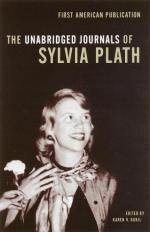|
This section contains 9,305 words (approx. 32 pages at 300 words per page) |

|
SOURCE: Manners, Marilyn, “The Doxies of Daughterhood: Plath, Cixous, and The Father.” Comparative Literature 48, no. 2 (Spring, 1996): 150-71.
In the following essay, Manners examines similarities regarding images of paternity in the works of Plath and French feminist writer Hélène Cixous.
As early as 1982 (English translation, 1984) Josette Féral called for comparative investigation of writers such as Sylvia Plath and Hélène Cixous, but until very recently, neither writer has been consistently and seriously considered as a literary figure (in the United States at any rate). Plath criticism, as Jacqueline Rose has exhaustively demonstrated, is so heavily invested in bitterly opposed biographical readings that the complexities of language, sexuality, history, and fantasy in Plath's texts have too often been ignored.1 Cixous, on the other hand, has received attention primarily as a “French feminist” and theorist—even as a literary critic—rather than as a novelist and dramatist...
|
This section contains 9,305 words (approx. 32 pages at 300 words per page) |

|


